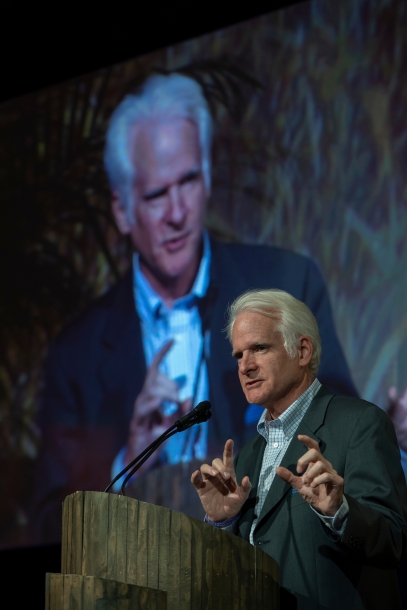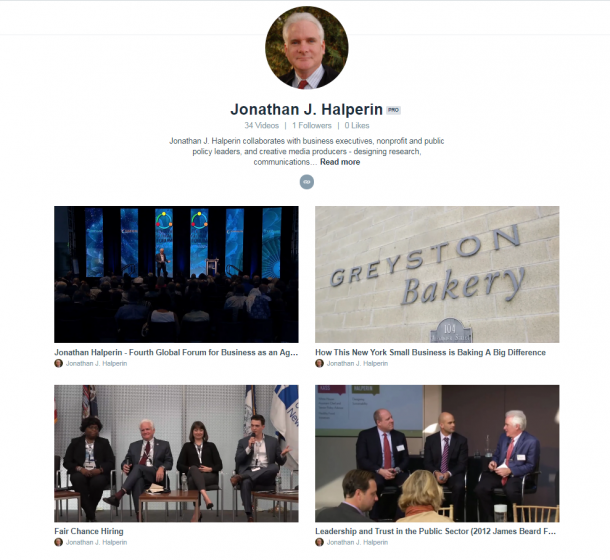You are here
Unhappiness at COP15: The History of The Future
As part of the global marketing of Hope in a Changing Climate, the award-winning film Halperin executive produced with a team from the Environmental Education Media Project, Halperin authored a series of blog posts from December 2009 to June 2010. The following dispatch is part of this series.
To learn more about the film and ecosystem restoration, see the Hope in a Changing Climate project.
Neither Al Gore nor Yves de Boer were looking very happy when they walked by a few minutes ago. And as is widely reported, there is concern within the sprawling Bella Center that despite pledges made in the ramp-up to COP15 little progress is being made here. And certainly the climate here has changed as full-fledged negotiations are now underway; non-governmental observers, fully accredited and registered, were largely closed out this morning as snow began to swirl around an increasingly frigid Copenhagen.
Although there is a raft of details to be sorted across a myriad of issues, two of the underlying issues causing continued discontent are historical. The first major dust-up was driven by a sense (and perhaps evidence) that the COP 15 president, Connie Hedegaard, had cut a deal with developed nations to shift obligations entered into under the Kyoto Protocol into a new treaty under which some aspects of Kyoto could be abandoned. Charges and counter-charges ensued as to the propriety of walking away from binding treaty commitments (though unratified in the US) as the first step to entering into a new treaty.
And the second historical debate centers on apportionment of responsibility for carbon emissions that are destabilizing our climate. Developing nations are loathe to take responsibility for carbon they did not emit. On the other hand, they are also determined not to have their own economic growth limited simply because the developed world pumped more carbon than the planet could handle to stoke the industrial revolution. Western leaders have generally been sensitive to this moral challenge from the developing world, but also unwilling to give rapidly developing economies a free-ride simply because their historic “moment” may still be in the future. Thus history, and differing interpretations of it, has a strong hold on the future.
-- Jonathan J. Halperin

